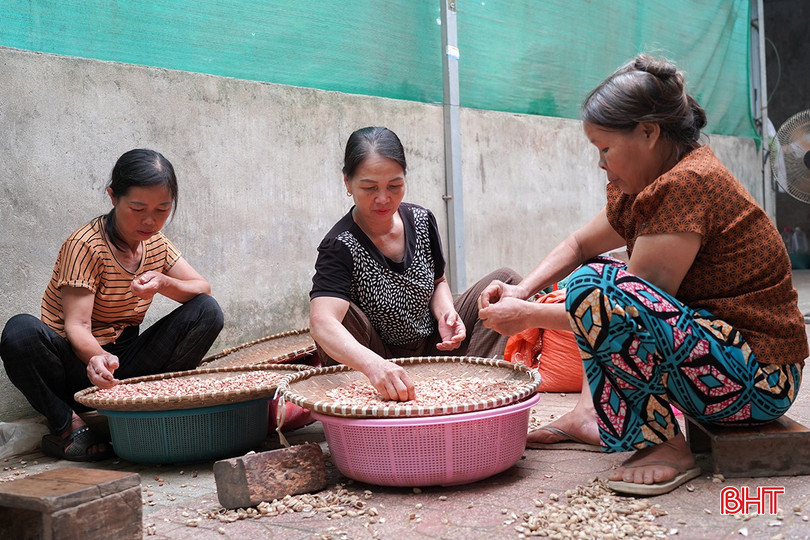
Taking advantage of the time near noon, Ms. Nguyen Thi Thanh (Dong Doai village, Duc Quang commune) brought 50kg of peanuts to the OCOP Mai Loi peanut oil facility (Dai Quang village, Duc Quang commune) to press oil. Not only Ms. Thanh, many other people also brought raw materials to press oil, some sat waiting, others were busy preparing to put them into the press.
Ms. Thanh said: “My family grows 3 sao of peanuts, so after harvesting, we press them for later use. Doing so takes more effort and costs more than buying oil from the market, but at least I know the origin, so I feel more secure when using it for the whole family.”
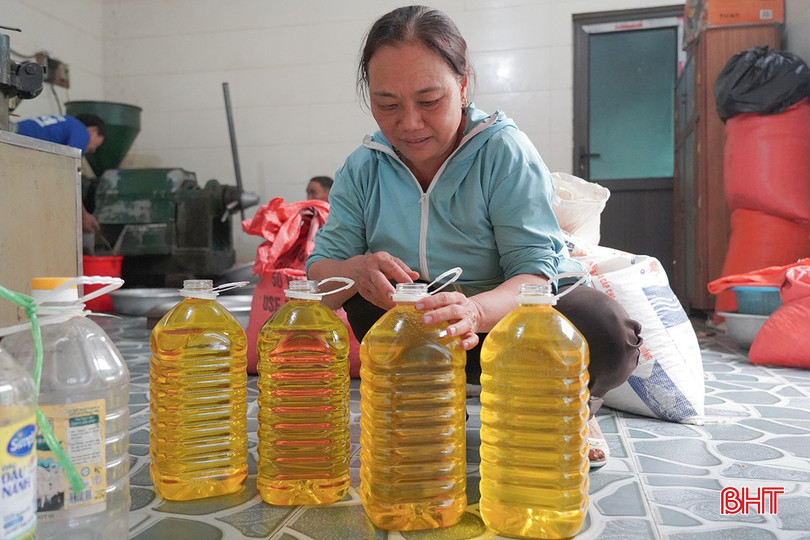
Not only pressing peanuts, many households also bring sesame and soybeans to press to process cooking oil for their families. Each type of oil has its own flavor, suitable for each way of cooking and is considered good for health if used properly. The advantage of hand-pressed oil is that it is not mixed, has no additives, helping users control the quality of the product right from the input materials.
Many households, although not directly involved in agricultural production, still proactively buy peanuts and sesame from the countryside to bring to the oil pressing facility. Ms. Nguyen Thi Yen (Tu My commune) said: “In the past, my family used bottled cooking oil bought at stores. But recently, information about fake oil of unknown origin has appeared a lot, so I switched to using hand-pressed oil. This type of oil has a natural aroma and tastes better when cooking.”
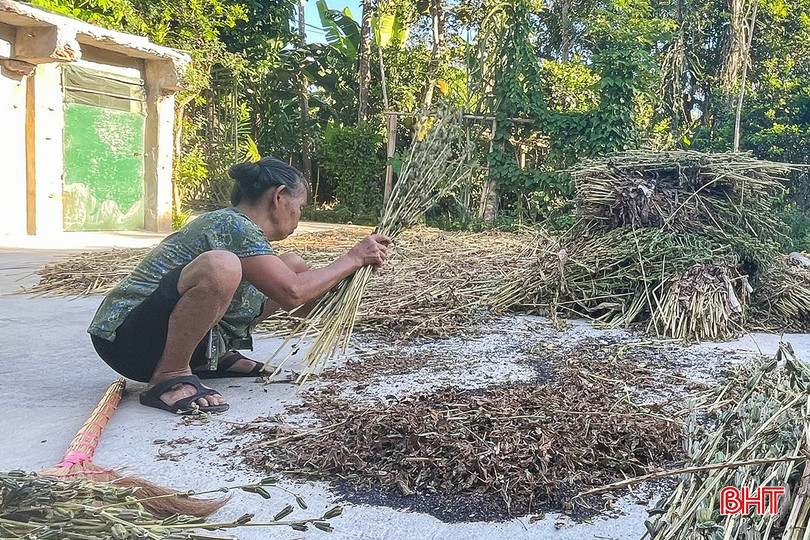
Depending on the type of seed, the oil yield is also different. On average, 10kg of peanuts produce about 4-5 liters of oil; sesame and soybeans produce less oil but in return have a distinctive flavor and specific uses. With a price of 120,000 - 130,000 VND/liter, peanut oil is currently nearly three times more expensive than industrial cooking oil on the market. Sesame oil and soybean oil cost from 150,000 - 170,000 VND/liter. However, many families are still willing to pay a high price to get pure products, ensuring safety for health.
The increased demand has led to more bustling activities at oil pressing facilities. At peanut and sesame oil production facilities recognized as meeting 3-star OCOP standards such as Mai Loi peanut oil, Mai Tinh peanut and sesame oil (Duc Quang commune), Anh Tho peanut oil (Duc Dong commune), the amount of raw materials that people bring to press every day has increased many times compared to the previous period.
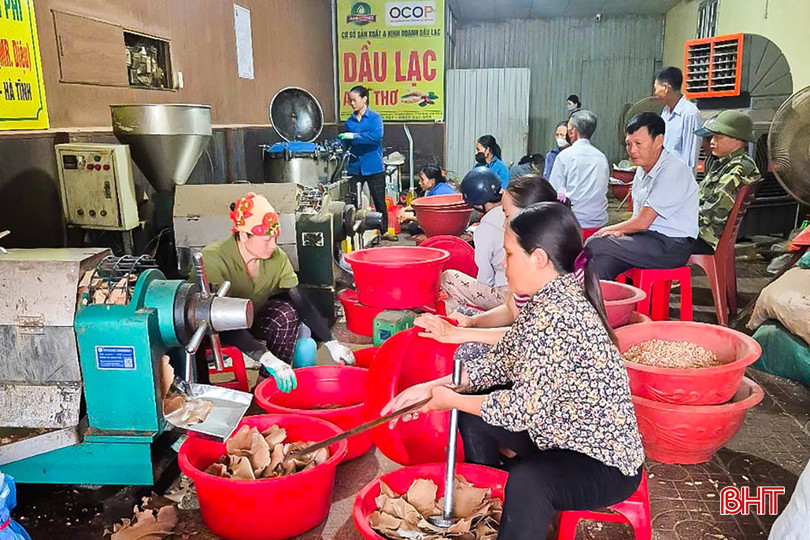
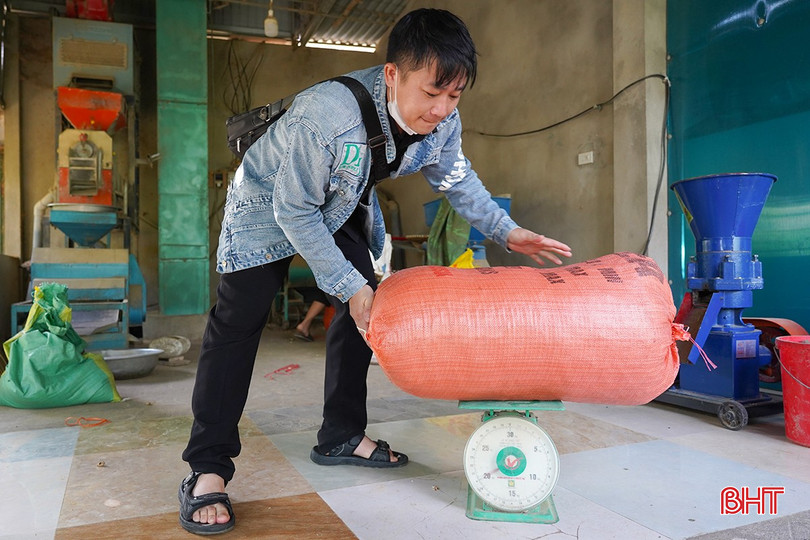
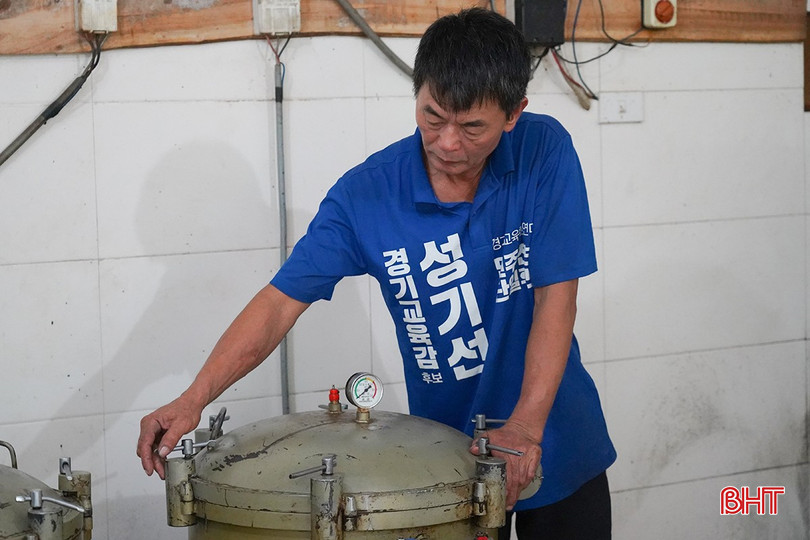
Mr. Nguyen Van Loi - owner of OCOP Mai Loi peanut oil facility said: "Compared to before, the number of customers coming to press oil has increased significantly. There are days when the facility has to operate continuously from early morning to late at night to deliver the goods. Many people not only press for their own use but also prepare it in advance to send to their children who live far away or give to relatives."
It is known that this is the time when people have finished harvesting peanuts, so the amount of raw materials brought to Mr. Loi's facility is very large. Every day, the facility receives from 1 to 1.5 tons of raw materials. Those who press a little only a few dozen kilograms, those who press a lot up to a hundred kilograms to store for later use. In addition to the rental pressing service, the facility also directly purchases peanuts to process and sell finished oil to the market with a stable output of about 1,000 liters per month. Recognized as meeting 3-star OCOP standards since 2023, Mai Loi peanut oil is currently a familiar choice for many families in the area.
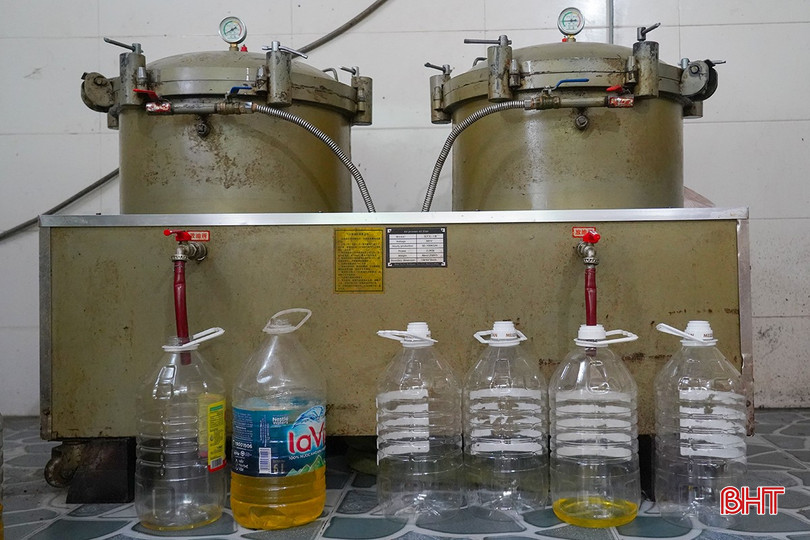
According to Mr. Loi, to get pure vegetable oil, the production process must go through many steps. After drying or drying, the raw materials are put into the shelling machine. People will then screen again, remove broken seeds, mold or impurities before pressing to ensure the quality of the output oil.
After preliminary processing, the raw materials will be put into the press 2 to 3 times to get the maximum amount of oil in the seeds. The crude oil after pressing, still mixed with residue, will be filtered by the machine to produce a finished product with clear color, no residue, and can be preserved for a long time. The remaining residue after pressing is used by people as animal feed.
It is known that to maintain quality, self-pressed cooking oil should be stored in clean, dry, tightly capped glass or plastic bottles. It is best to store in a cool, dry place, avoiding direct sunlight or high heat sources. Consumers should also divide the amount of oil into each bottle, use gradually according to needs, should not open the lid frequently or leave the oil exposed to air for a long time because it is easy to oxidize and reduce quality.
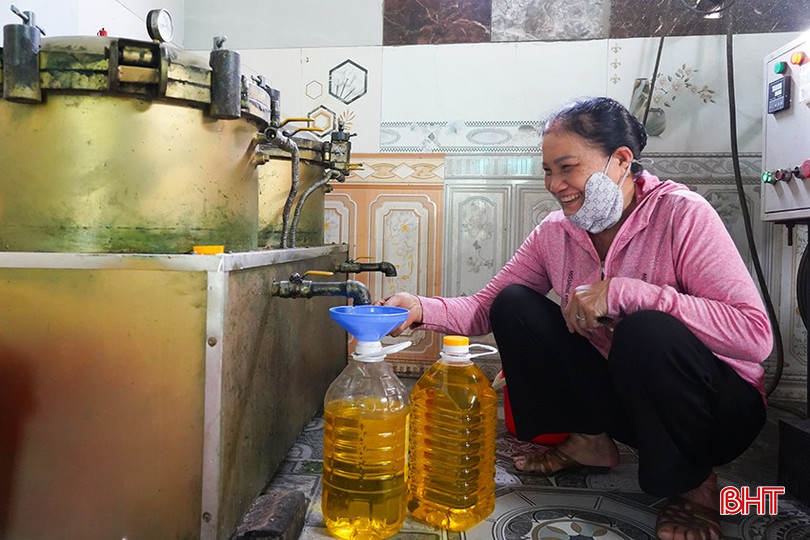
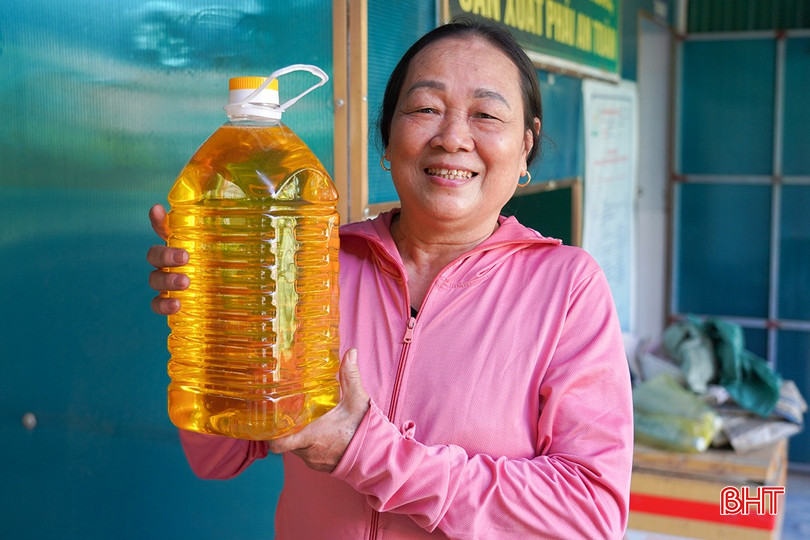
The shelf life of self-pressed oil is usually 3-4 months if stored properly. The oil has a characteristic aroma, natural light yellow color (for peanut oil), or light brown color (for sesame oil), does not contain additives, so it needs to be stored properly to retain its flavor and nutritional value.
Source: https://baohatinh.vn/lo-ngai-an-toan-thuc-pham-nhieu-nguoi-dan-do-xo-di-ep-dau-thu-cong-post291564.html







![[Photo] Nhan Dan Newspaper launches “Fatherland in the Heart: The Concert Film”](https://vphoto.vietnam.vn/thumb/1200x675/vietnam/resource/IMAGE/2025/10/16/1760622132545_thiet-ke-chua-co-ten-36-png.webp)

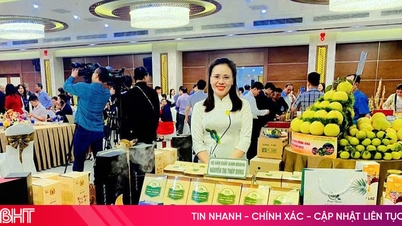




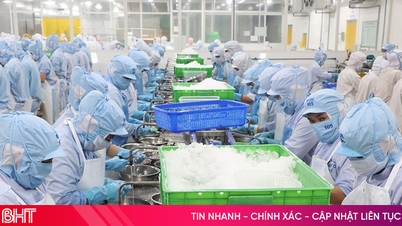


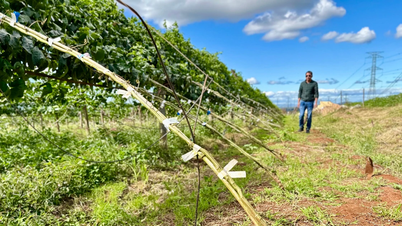











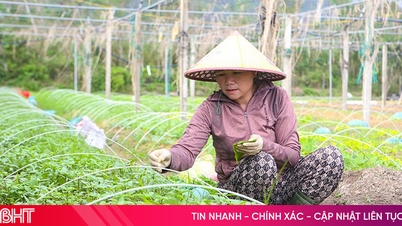


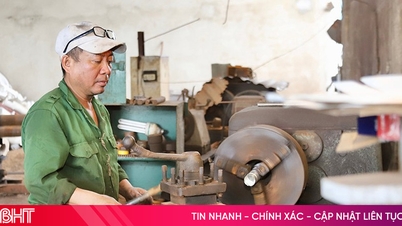





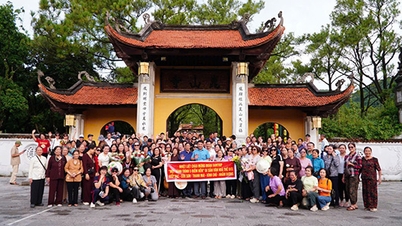

























































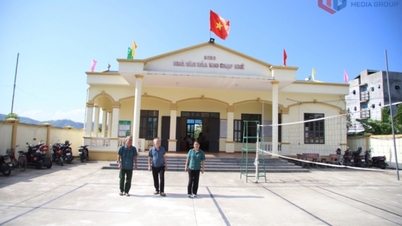














Comment (0)